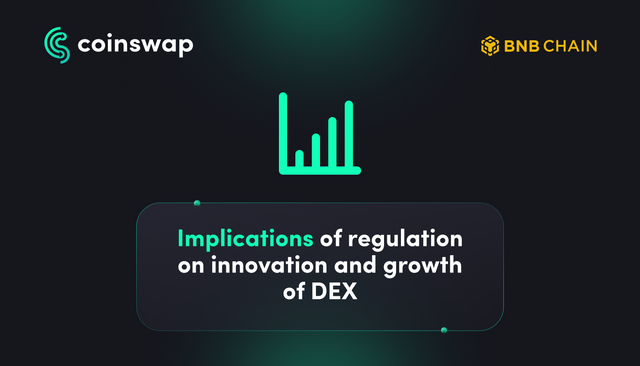
Decentralized exchanges (DEXs) have gained significant attention and popularity in cryptocurrency trading. 🚀 These platforms offer a peer-to-peer trading experience, eliminating the need for intermediaries and giving users more control over their funds. However, the growth and innovation of decentralized exchanges can be influenced by regulatory measures imposed by governments and regulatory bodies. 📜🔒
Regulation plays a crucial role in the cryptocurrency space as it aims to ensure investor protection, prevent fraud and money laundering, and maintain market stability. 🛡️ While these goals are important, excessive or overly restrictive regulations can hamper the growth and innovation of decentralized exchanges.
🚫⛔One of the key challenges DEXs face in terms of regulation is the lack of clarity and consistency. Different countries and jurisdictions have varying regulatory approaches and frameworks for cryptocurrencies and decentralized exchanges.
🌍 This lack of uniformity creates uncertainty for businesses and users operating in the decentralized exchange space. It becomes challenging for DEXs to navigate through multiple regulatory landscapes and comply with different requirements, leading to potential limitations on their growth and expansion. ❓❗
Moreover, stringent regulations may require DEXs to implement robust KYC (Know Your Customer) and AML (Anti-Money Laundering) procedures. 🕵️♀️🔒 While these measures are crucial for preventing illicit activities, they can undermine the privacy and anonymity that decentralized exchanges offer. ⚖️ Striking the right balance between regulatory compliance and maintaining the core principles of decentralization becomes essential to sustain innovation and user trust in DEXs. ⚖️🔒
On the flip side, well-crafted regulations can also bring certain benefits to the decentralized exchange ecosystem. Clear guidelines and regulatory frameworks can attract institutional investors and traditional financial institutions to participate in decentralized trading. 💼💰 This infusion of capital and expertise can fuel innovation, improve liquidity, and enhance the overall credibility of decentralized exchanges. 💪💰
Regulatory approaches should be designed in collaboration with industry participants to ensure the healthy growth and innovation of decentralized exchanges. 🤝 Engaging with DEX developers, traders, and other stakeholders can help regulators gain a deeper understanding of the technology and its potential benefits. A balanced approach that addresses investor protection concerns while fostering innovation and market growth is crucial for the long-term success of decentralized exchanges. ⚖️💡
In conclusion, the implications of regulation on the innovation and growth of decentralized exchanges are significant. While regulation is necessary to protect investors and maintain market integrity, it should be carefully crafted to avoid stifling innovation and impeding the progress of DEXs. Collaborative efforts between regulators and industry participants can pave the way for a regulatory framework that balances compliance and innovation, ultimately benefiting the decentralized exchange ecosystem and the wider cryptocurrency industry. 🌍💼💪